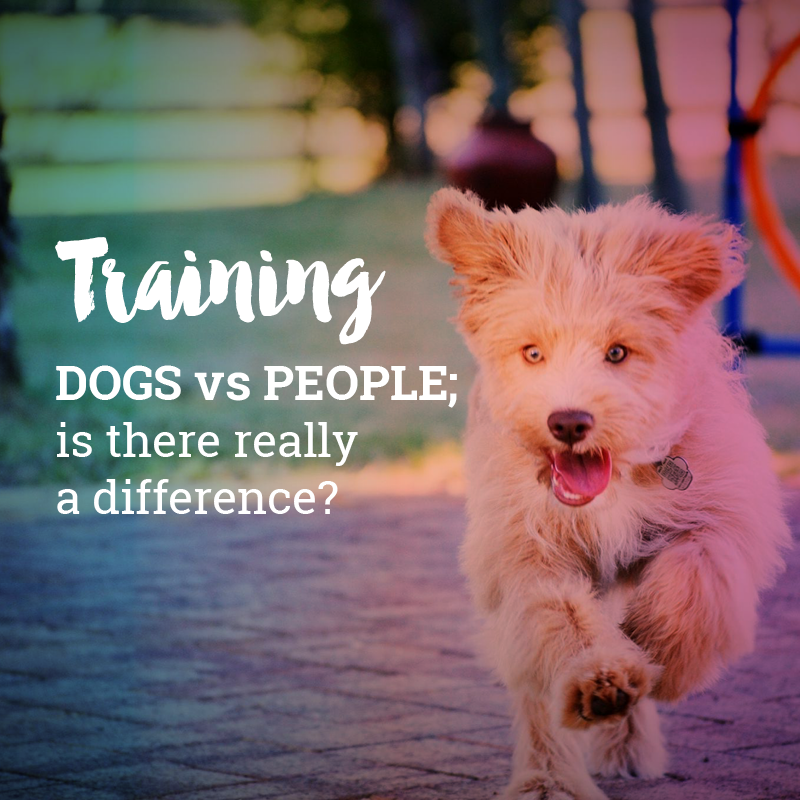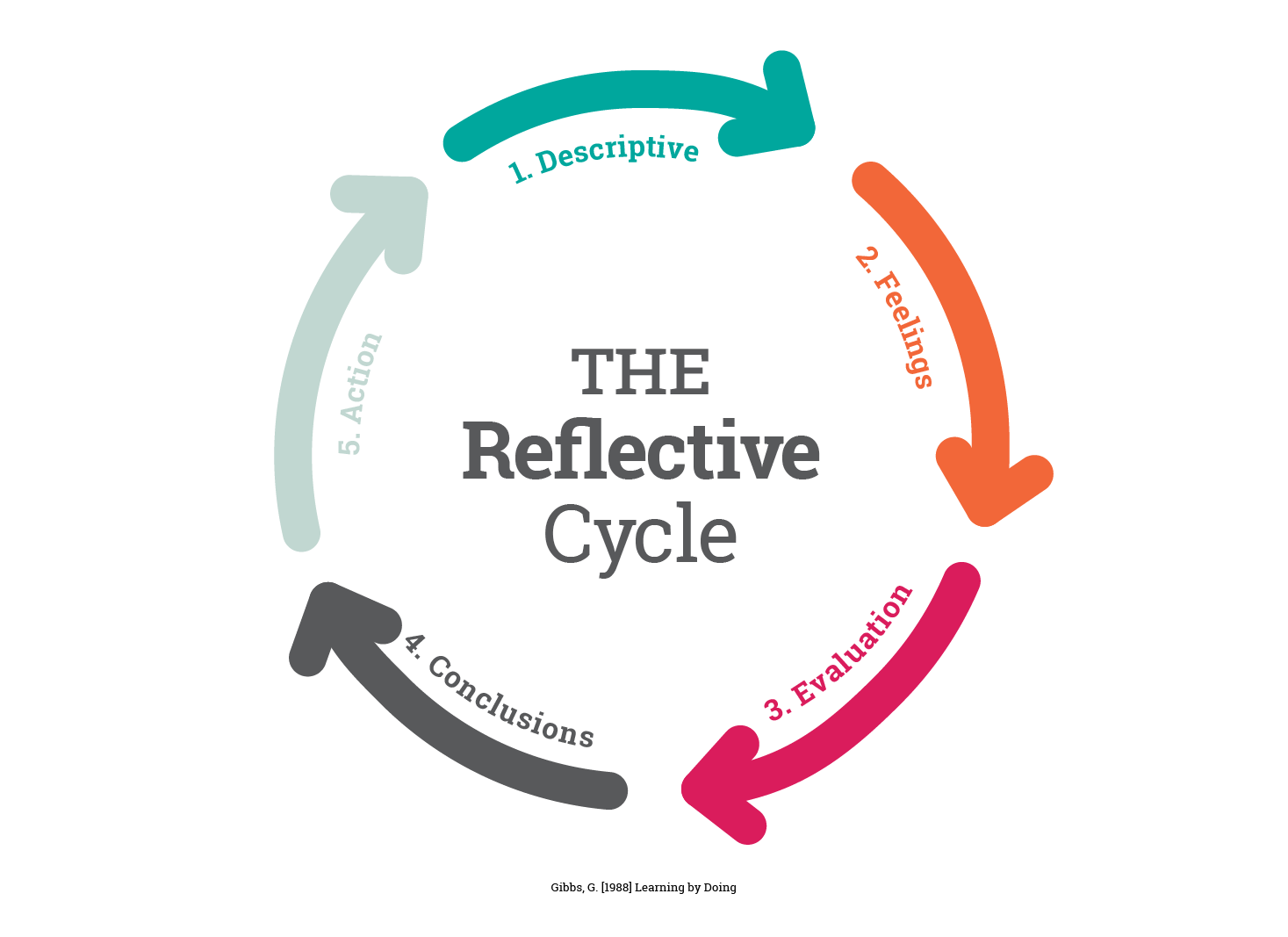Training dogs vs people; is there really a difference?
Bentley the Bordoodle (Border Collie x Poodle) arrived just before Christmas, excitedly throwing us into chaos throughout the festive season. Having just put Seddon our 17 year old Tibetan Spaniel to sleep, the arrival of a puppy brought with it harrowing memories of toilet training and chewed furniture. Bentley’s arrival began the journey down the long and demanding road to fur-baby parenthood.
‘I have been training adults professionally for 25 years now; this puppy should be a walk in the park’, I optimistically told myself. With the first six months behind me I thought it was time to reflect on who is easier to train, a Bordoodle or a human?
Both are motivated by reward
Bordoodle or human, the similarities are there, both are definitely motivated by reward. Learning through reinforcement, also known as operant conditioning, suggests that behaviours that are reinforced and rewarded are more likely to be repeated. I can’t quite give adults liver treats and invite them to roll over, but I can help them gain reflective insight and provide feedforward or recognition for what they have done well. Adults gain competence and confidence learning if the experience they associate with an activity is a positive one. They are more open and likely to want to experience it again. Bentley, oddly enough feels somewhat the same!
Be clear, be specific
Being an advocate of Ken Blanchard’s One Minute Management practices, I know that when goal setting, giving praising, or when reprimanding, it is important to be specific with all feedback afforded. Tone becomes paramount in giving context to the message. It is important not to mix your messages, as both dog and human respond proactively when your message is clear.
Adult learners need to know from the outset what is expected of them and exactly what ‘accurate’ looks like. If you consider learning styles when structuring your learning sessions you will always create effective handouts containing instructions, photos or diagrams and provide ample opportunity for learners to practice whilst you remain on hand to provide feedback. Does Bentley favour a handout? Not exactly. But he responds most positively to clear instructions. Demonstrating how to sleep in his dog house and complete the agility course before he tried it was certainly entertaining!
Be a source of happiness and positivity
Early research focusing on how adults learn, framed the Behaviourist philosophy. Psychologist John Watson published an article in 1913 titled Psychology as the behaviourist views it. Watson proposed that classical conditioning (founded on Pavlov’s dog observations) was the key to enticing the human brain to learn new behaviours. Based on the principle of association, two stimuli linked together would produce a learned response in a person or an animal. In 1920, Watson worked with his graduate student, Rosalie Rayner, to conduct the now infamous Little Albert experiment substantiating that classical conditioning can be used effectively in humans to create happiness or fear. Much the same way in today's classroom, positive feedback afforded will ensure that learners do more of the same. It is necessary to maintain a positive and safe learning environment if learners are to engage and explore.
Using Watson’s approach I taught Bentley to wear his Doggles. Positive association, (a ride in the car with his head out the window, fur flying) saw Bentley quickly adapt and understand that he could see more with his eyes open than he could with them shut!
Watson’s behaviourist theory still has its merits when training adults in procedural processes, but B. F. Skinner’s operant conditioning methods coupled with a reflective feedback model such Professor Graham Gibbs achieves more effective results. Gibbs' model profiled in his 1988 book Learning by Doing suggests that adults learn best when they reflect on situations that don’t go well.
Back to Bentley, can we call him reflective? One look at his expressions when you find your glasses, shoe and wallet lined up ready to be buried in his hole and you could argue he’s reflective. You see the gamut of emotion from elation, to inquiry, to disbelief, to sorrow in the space of a minute. Does he change his actions as a result of his reflection? The evidence would support no. I am positive as he matures his results will improve. Will his change in behaviour be the result of reflection or reinforcement? I am thinking the later.
Is there really a difference?
So is there really a difference between training humans and dogs? Both are social and live in a family structure, yet one grows up independent whilst the other remains dependent on and faithful to its pack leader. The differential definitely lies in the mind and the ability for cognitive thought. Try as I may to reason with my dog, “If you do this Bentley….then this will happen.” I am unable to assist him to understand. Conversely when I use this bargaining technique on my human counterparts, I enable cognitive thought processes and allow them to explore. Bentley responds solely to motions and commands rather than reasoning and cognitive exploration. It would appear that on this facet, humans are definitely in front.
Adult learning principles, can they be applied to Bentley?
Malcolm Knowles an American practitioner and theorists of adult education pioneered adult learning principles in the 1970’s. Andragogy (adult learning) is a theory that holds a set of assumptions about how adults learn, I wondered what would happen if I applied them to Bentley’s journey, would there be any synergy or are we polar opposites?
1. Adult learners are motivated and self-directed
Adult learners will definitely only engage when they are motivated and consider the topic they are studying to be meaningful, or see the immediate benefit the learning will bring to their life. Bentley will do anything you ask of him if the reward and the recognition given are congruent. Bentley is definitely motivated; motivated by food, toys and rewards, but is he self-directed through intrinsic motivation?. Whilst his intrinsic motivation is always to please, I don’t think I could successfully argue against my university lecturer that he establishes his goal list and priorities every morning and works his way through them.
2. Adult learners bring life experience and knowledge
Watching Bentley learn and grow, I can certainly argue that he has learnt from experience. Has this built the equivalent of his knowledge bank? You would have to assume yes. Toilet training and using the doggy door come to mind as examples; both he mastered effectively once the foundation of knowledge had been established and the variables explored. Whilst I wouldn’t call toilet training effortless, he learnt through experience and repetition the core competencies required. Adults are similar, they learn best when placed in an environment that allows knowledge to be anchored against life experience. If they can relate, they connect. If they explore they remember.
3. Adult learners are goal orientated
An adult learner’s cognitive ability allows them to establish and work towards self-initiated personal goals and rewards. Bentley’s goals whilst intrinsic are dependent on others to be achieved and rewarded. Bentley has one goal; his need to please. He diligently dedicates waking moments to ensuring parental happiness is achieved. As his owner, I am happy that this is his focus, as nothing affords me greater pleasure than spending time with the dog. If you argue Bentley has a goal and you prove that he achieves it; does that evidence dogs are goal orientated and this principle applies? Alas I am happy to concede that it is instinctual behaviour rather than goal orientation that drives Bentley.
4. Adult learners are relevancy orientated
Adults need to know why they are learning something and how it can be applied in their real world, anchoring into experience and understanding frames the foundation on which they move forward. Does Bentley understand relevancy? Toilet training may suggest yes. Relevancy was established by associating purpose with smell, sight and command. Whilst cognitively Bentley is not able to connect to the depth and degree of a human, he certainly frames his sense of purpose from the relevancy of the task he is completing.
5. Adult learners are practical
Similar to adults, Bentley learns through experience and repetition, building on and enabling what could only be called his knowledge bank. Two key concepts associated with practice in adult learners are latency and automaticity; do these concepts apply to Bentley? Latency refers to the fact that once a task has been practiced sufficiently the time taken to produce a result will decrease whilst automaticity increases. Each time Bentley practiced on the agility course it enabled him to internalise his new knowledge and become efficient in applying his new found skill building automaticity. Does that mean Bentley is no different to a human? I can’t wait to hear my university lecturer’s response to this one!
6. Adult learners like to be respected
Becoming a benevolent leader, establishing mutual respect is the key when training either adults or dogs. I recently viewed a TED talk given by respected trainer Ian Dunbar titled Dog-friendly dog training. In his presentation Ian touched on his belief that modern dog training techniques and modern child rearing overlap. Both he suggested should be based on the principles of respect, positive interaction and reinforcement of the right behaviours. I think this is equally true with adult learners and Knowles’ theory would concur.
What’s the answer?!
So I return to the question: dog training vs adults; is there really a difference? Whilst I’m convinced of the similarities in approach, theory and principle, it is in practice that I acknowledge that the differences become apparent. The ability to engage in cognitive thinking, dialogue and exploration are for me the deciding factors that based upon this research lead me to surmise that humans are indeed more complex than dogs to train.
Adult learners require training that is customised or sufficiently broad so that it meets the individual preferences and needs of the learner to obtain maximum outcomes, whereas dog training is founded around the same principles for all dogs (command, performance, reward, repetition - purely to establish routine responses). My conclusion, pedagogy (the study of how children learn) is more akin to Bentley's preferred teaching style.
If you found this post useful, kindly tap the ❤ button below or leave us a comment! We would value your thoughts and feedback!















